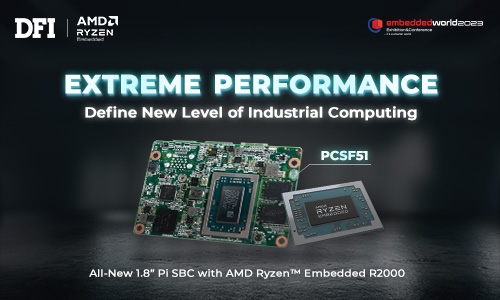In the 5G era, from Radio Access Network (RAN), Multi-access Edge Computing (MEC), to Evolved Packet Core (EPC), it is the ideal choice to adopt an x86 server platform with high application flexibility, reliability, and availability to create the right 5G application environment and pursue the lowest capital expenditures (CapEx) and operating expenses (OpEx). It also fully implements the core spirit of Software-Defined Network (SDN) and Network Function Virtualization (NFV).
5G network not only brings greater bandwidth but also lays the foundation for the connection of everything. The frequently changing 5G specifications, the need to gradually shift from 4G, and the sharp increase in the number of small cells due to the millimeter-wave frequency band (mmWave) have forced 5G base cells to shift to COTS (Commercial-Off-The-Shelf) general-purpose hardware architecture to achieve both low-cost and high-flexibility solutions. The rise of edge computing and container technology has allowed real-time applications to move from cloud data centers to edge nodes, giving birth to the Multi-Access Edge Computing (MEC) platform providing computing and storage services for terminal users nearby. In addition to the 10Gb/s bandwidth, it achieves a service response time of "less than one millisecond latency."
Therefore, due to many deployments and different outdoor application environments, the 5G small base cells and edge computing servers require powerful computing performance to meet future upgrade requirements, industrial-grade reliability, and durability to ensure operational stability. In addition to hardware that can withstand harsh environments, when the operating system is damaged, or software problems cause abnormal processes. A remote management system that can perform out-of-band (OOB) operations are also required.
Security and upload speed are the top priorities of the Internet of Things. When everything is connected to the Internet, security will be the most important part of managers. The security of 5G is far superior to WiFi, which is a natural fit of the Internet of Things. In addition, IoT edge devices often upload data to the cloud. The current average upload bandwidth of 4G is 8-50Mbps, while 5G is as high as 25-100Mbps, which is more suitable for IoT applications. DFI products also support optional 5G modules.
DFI's rich experience in industrial computers has a high degree of flexibility to customize products for different customer application scenarios. RemoGuard cloud management platform can easily monitor and control all local and remote devices with integrated real-time display, timely warning, and one-key recovery. Therefore, DFI is the most suitable partner for your future expansion of 5G.
Learn more at Intel's website: https://networkbuilders.intel.com/ecosystem/dfi









,有助於車隊管理員管理駕駛行為、運動感測、急煞車和衝擊偵測.jpg?timestamp=1689918406.42007)











_w600.png?timestamp=1620094409.25252)
R2_w600.png?timestamp=1596503132.83623)
_w600.png?timestamp=1612769012.77007)
-R4-W600.png?timestamp=1564657524.68374)
_w600.png?timestamp=1619493174.42015)
R3_w600.png?timestamp=1658976833.69266)